Life stages as we age
Women’s biological, social and emotional needs are all impacted as we progress thorough our different life stages. Life and going through menstruation, pregnancy, childbirth on to menopause at various times, the extremely different events makes our experiences all individual and very different for each of us.
As the years go by and our life circumstances change, the roles we play in life often change too, from being the good daughter to the fun loving single woman, we often take on the roles of being a wife, home-maker, mother, and care-giver to our parents being aware of what we need to do can be helpful for all of us as life just doesn’t stay the same.
Life Stage – In our 20’s :
Life is very exciting in our 20’s as we experience lots of new things, we finish our schooling, begin a new career, meet and date new people learning about love, lust and adventure. Our bodies are producing lots of hormones and we are adding both fat and muscle to our strong bones and flexible bodies as natures way of preparing us for childbirth.
During the excitement of our 20’s we need to watch our over indulgences, especially when it comes to diet, drugs, alcohol and sex, so looking after our health is imperative along with getting enough sleep
- Poor diet with high sugar and fatty foods combined with low exercise can mean we need cholesterol and diabetes checks.
- Birth control needs to be planned so pregnancy is avoided if that is your desire during this time.
- Safe levels of consumption of alcohol needs to be maintained
- Regular STD screenings are needed when we have multiple sexual partners, so make sure you are having safe sex to avoid chlamydia or gonorrhea.
- Routine medical examinations every two years testing blood pressure, skin checks, pap smear and breast examinations
Life Stage – In our 30’s
Life has changed in this decade and probably become much more busier keeping up with kids, home, work and running your business especially if you are working from home. While you might not look any different, you might be feeling exhausted and overwhelmed with everything you are trying to do. Putting yourself first and looking after your health has to be a priority for you.
- Infertility can become a problem now, especially as we age above 35 as our fertility decreases so becoming pregnant can become harder and there is increased risks of birth defects, you may need to consult a gynecologist or an obstetrician.
- As our hormones fluctuate our birth control solutions may also need to change to reflect our changing bodies.
- We may need to be much more vigilant about eating a healthy diet so we have the energy needed while maintaining a healthy weight and not adding the extra kilo’s from eating junk foods.
- Prioritising self-care time for you with yoga or meditation to manage stress levels
- Maintaining your regular two yearly medical checks with blood pressure, pap smears, breast examination, skin check, cholesterol and diabetes checks
- Arrange special times for your relationship, make it a priority, it can often be forgotten when kids are in the picture.
Life Stage – In our 40’s
Life still hasn’t started to slow down, the kids are even more demanding as they have grown into teenagers and our career has been established. Our parents are also aging as we make our way through our 40’s too, so the responsibility of watching over them may also have started to creep into our lives, so often we feel the responsibility of our family is growing more heavily on us. Looking after ourselves is a hugely important so we start the need for our annual physical examination:
- We need to be more aware of our mental health and depression, insomnia, high blood pressure or even a cardiovascular risk assessment.
- A good balanced diet is even more important especially our increased need for calcium as our body readies itself for menopause.
- our eyes during our 40’s also start to deteriorate and need to be checked as we might need reading glasses
- Our exercise routine should change from aerobic to including muscle and strength building exercises to build on bone loss which happens during menopause.
- Routine Blood pressure, thyroid, pap smears, skin checked for unusual moles, cholesterol & diabetes tests and mammograms may be added to the list at this stage of life too if there is family history.
- Menopause can affect us from our late 30’s through our mid 50’s, with the average somewhere between 45-55. The symptoms and severity can vary considerably from person to person and can last as little as a few months through to five or beyond years. While some women experience no to very few symptoms others can include:
- Erratic periods with varying times in-between bleeds
- Night sweats
- Sleepless nights tossing and turning
- Increased bone loss and need for additional calcium
- Heart palpitations.
- Dry thinning skin
- Irritability and moodiness
Life Stage – In our 50’s
Our 50’s is a wonderful time in life, our children are grown or nearly grown our time is freeing up and we have more personal “me time” to do the things we love and time spend with those we enjoy or love the most.
As we age our bodies shape and our energy levels also change. Our metabolism slows and our bodies lean muscles mass slowly turns into fat. Being very careful to eat fewer calories and a well balanced diet to maintain a healthy weight is even more important as we get older, as is having regular yearly health checks:
- From age 50 we need to increase our calcium 200mg a day, include diary, almonds, sardines and kale in your diet.
- Mammogram can be more regular when there is family history of breast cancer
- A yearly medical examination will include a lot more tests with your Doctor taking a lot more notice of family history.
- The Australian government sends a free Bowel Cancer Screening test to eligible Australians when you turn 50 and regularly after that.
In our 60’s and even older
Women of today are certainly different to women of the past who are in their 60’s. Our grandmothers were old retired ladies who were settling into sedentary lives decades ago, today we have grandmothers in their 60’s running marathons, becoming weight lifters, going to uni getting degrees and starting businesses.
Our life is only starting when we turn 60 instead of finishing, our children are grown and our parents mostly gone, our responsibilities have diminished and time is our own so we can do things in our life we have always wanted to do. We are self educated in the areas that interest us and often have the funds available to do things we have always wanted to do. Life is good.
We understand our age and the challenges that our health can provide, so we are prepared to alter our lifestyle and diet to look after ourselves and live more comfortably. We have sat with people as they have died and understand how precious and short life is and as 60 year old women we want the rest of our lives to mean something and be productive doing the things we are passionate about.
In our 60’s we need to:
- Keep our bodies moving,
 walking and weight bearing exercises are good for our bones
walking and weight bearing exercises are good for our bones - get some sun it will help your Vitamin D levels and calcium absorption.
- Make sure we have protein with all our meals and snacks as after 60 protein isn’t absorbed as easily into your muscles, so include lots of different protein such as eggs, beans, fish, quinoa, lean meats or protein shakes regularly in our diet.
- Be aware of our bodies and any aches and pains that are out of the norm, by monitoring our health we can stay on top of anything that presents.
- Have regular medical check ups to monitor for heart disease, cancers, osteoporosis, arthritis or neurological disorders.
- Bladder issues may cause leaking when we cough or sneeze but can also cause incontinence at other times especially at night at this age too
- Regular vision, hearing and dental appointments are also required at this age
- Keep our brain active and learning new skills will help keep neurological disorders like early onset Alzheimer’s or dementia at bay.
As the decades pass, women have the amazing capacity to adapt to whatever comes next. Awareness that our bodies and our lives will change, not end, but change is just the beginning..

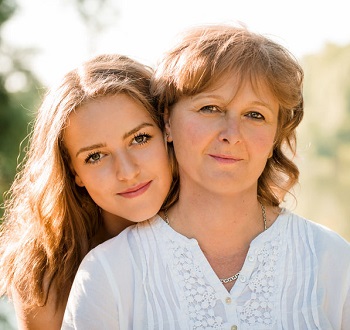


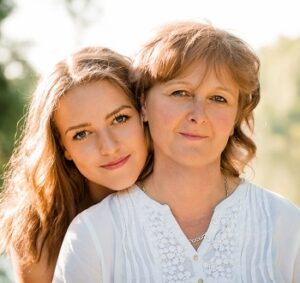
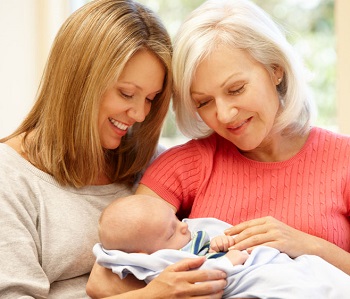



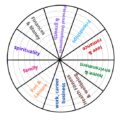
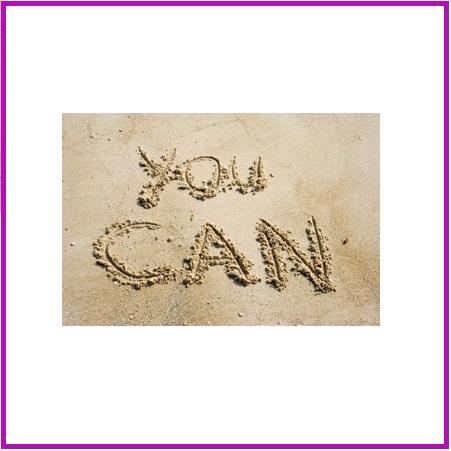



0 Comments